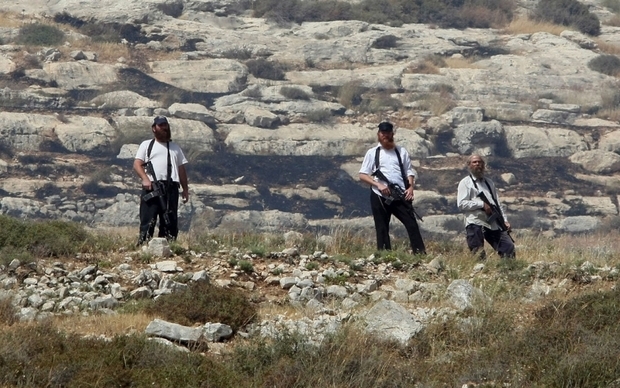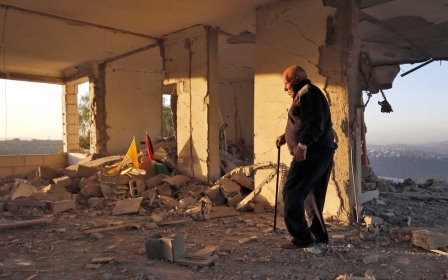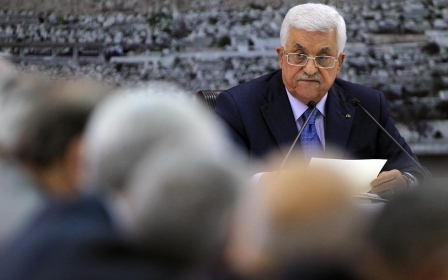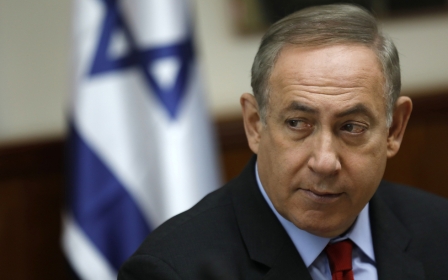Abbas slams Knesset bill aimed at blocking Palestinians from Jerusalem

Palestinian Authority President Mahmoud Abbas condemned on Tuesday the Israeli parliament's approval of a bill which aims to make it more difficult for upcoming Israeli governments to return parts of Jerusalem to Palestinians under any future peace deal.
The bill, which amends the Basic Law of 1980 titled "Jerusalem, Capital of Israel", was approved by a 64 to 51 vote. Israel's Basic Laws are its equivalent of a constitution.
Abbas said he considers the legislation to be "a brutal war on the Palestinian people and their land and holy sites".
"This voting should remind the international community that the Israeli government, with the full support of the US administration, is confronting a permanent and just peace, and systemically imposing an apartheid regime in all of Palestine."
The bill comes weeks after US President Donald Trump's decision to recognise the city as Israel's capital which has sparked deadly protests.
According to the new legislation, any ceding of lands considered by Israel to be part of Jerusalem would necessitate a two-thirds majority vote in parliament - 80 out of 120 members of the Knesset.
Once Palestinians are in a separate local council, Israel will say the centre of their life is no longer in Jerusalem
- Daoud Alg'ol, Palestinian researcher on Jerusalem
Saeb Erekat, the PLO's former chief negotiator, told Sawt Filisten radio that he considers the bill to be an extension of Trump's recognition of Jerusalem. The Palestinian Authority, he added, met with Trump 36 times to reach a peace agreement, but the US administration has not kept its promises.
Esawi Freige, an Israeli Knesset member with the Meretz party, told Haaretz that the new law "is a racist law".
"It's a law meant to cleanse Jerusalem of its Arab residents,” Freige said. “After the Israeli government chose to erect a wall within Jerusalem, now it is seeking to remove 100,000 of its residents from the city.”
Knesset legislation paves the way for the establishment of a new local council for the Palestinian neighbourhoods cut off from Jerusalem by a separation wall.
Such a move, according to experts who spoke to MEE in November, would reduce the city's Palestinian population by a third.
Jerusalem Affairs Minister Zeev Elkin told the Jerusalem Post that the new council would initially be governed by an interior ministry-appointed committee.
'Twilight zones' of neglect
Areas impacted by the bill are located on the far side of the wall which Israel installed a decade ago. They include Kafr Akab, Shuafat refugee camp and parts of Walaja, Sawahra and a-Sheik Sa'ad.
Haaretz estimates that nearly 150,000 people live in these areas, comprising as many as two-thirds of the population of East Jerusalem.
Even though the residents pay taxes to the Jerusalem municipality, Palestinian areas outside the barrier are “twilight zones” of neglect and lawlessness.
Residents in those areas have been effectively abandoned by the Jerusalem municipality, and have found it even harder to access the rest of the city, Daoud Alg’ol, a Palestinian researcher on Jerusalem, told MEE in November.
“Once Palestinians are in a separate local council, Israel will say the centre of their life is no longer in Jerusalem and their Jerusalem residency papers will be revoked,” said Alg’ol. “This already happens, but now it will be on a much larger scale.”
Since 1967, Israel has revoked the residency permits of more than 14,000 Palestinians, forcing them to leave Jerusalem.
Israeli Prime Minister Benjamin Netanyahu postponed an earlier vote on the bill, reportedly after US President Donald Trump's recognition of Jerusalem as the Israeli capital.
Middle East Eye propose une couverture et une analyse indépendantes et incomparables du Moyen-Orient, de l’Afrique du Nord et d’autres régions du monde. Pour en savoir plus sur la reprise de ce contenu et les frais qui s’appliquent, veuillez remplir ce formulaire [en anglais]. Pour en savoir plus sur MEE, cliquez ici [en anglais].




